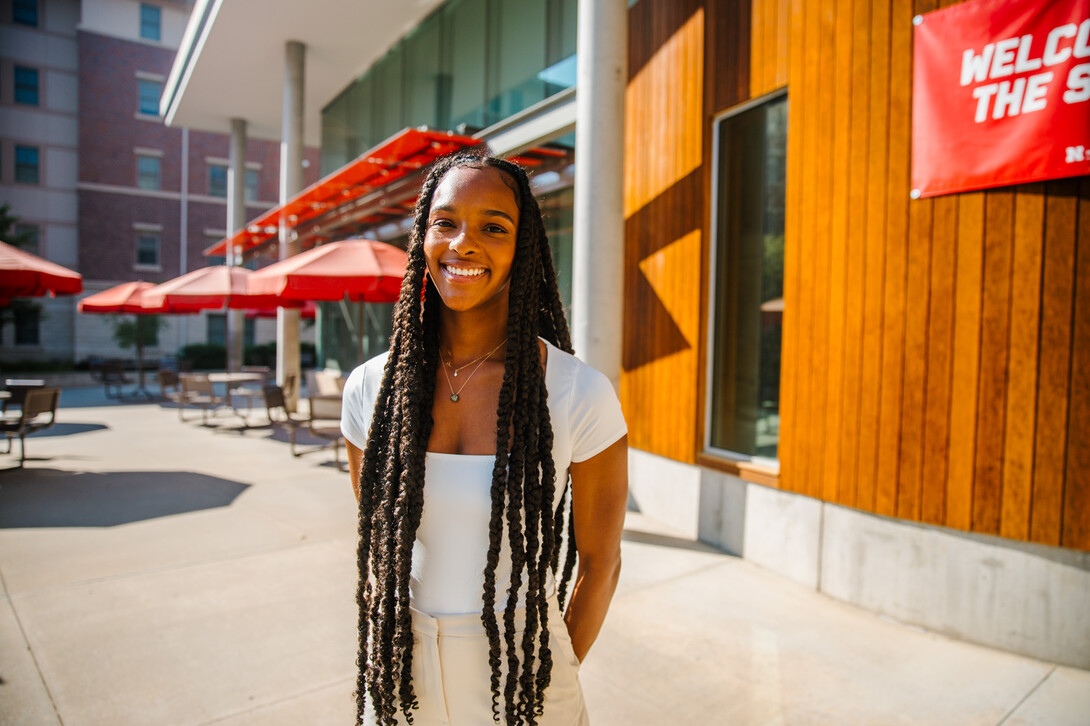
As a counselor-in-residence in Eastside Suites, Payton Horacek’s goal is to help Huskers feel like they have someone nearby to turn to when they need to talk. She’s one of three trained mental health professionals stationed in residence halls around campus available to meet with resident students.
“Students can meet with us for individual therapy sessions, couple sessions, with roommates, friends, parents — whatever they need, they can meet with us for free,” Horacek said. “Being a young adult and starting a new phase of life, having someone to talk to is really important.”
All counselors-in-residence are graduate students in the College of Education and Human Science’s Marriage and Family Therapy program. A former Husker track athlete and now master’s student, Horacek remembers clearly the overwhelming wave of information, emotions and questions that come with arriving on campus.
“When you get to college, you’re coming from a time when things were so much more structured — you can sometimes feel like you’re on your own,” she said. “I’m here to be a bridge for students and let them know they’re not alone in this process.”
Students can schedule sessions with counselors from any residence hall by contacting couplefamilyclinic@unl.edu. Counselors can talk through a range of topics, from homesickness, school stress and mental health to coping skills, developing healthy habits, family struggles, relationships and so much more.
Horacek wants students to know that counselors are there to facilitate these hard conversations, especially when it comes to navigating issues that involve others.
“This just gives you another person to be on your side and help you in this process of having conversations that you’ve been wanting to have.”
Aside from being a graduate student, Horacek considers herself outdoorsy, goofy and someone who loves to rollerblade — all things she wants students to know about her before scheduling a session with her. She believes being yourself is crucial to successful sessions.
“I want students to be able to connect with those parts of me because we’re all just a little bit goofy,” says Payton. “I truly think that therapy only works when we’re allowed to be our authentic selves.”







